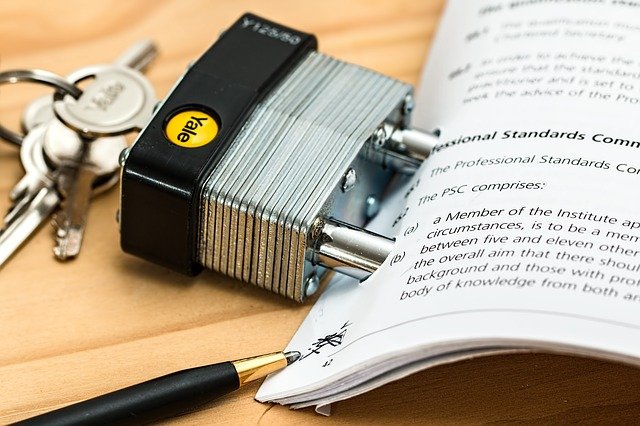Contractor’s Guide to Construction Bonds
As a construction contractor, you will likely encounter several different types of surety bonds. The field of construction comes with significant risks, and surety bonds function as risk-transfer mechanisms to protect project owners and the government in case a contractor defaults. Certain types of construction bonds also protect suppliers and subcontractors and ensure that they will be paid for their work and supplies on projects. Because of the important role that surety bonds have within the construction industry, you must understand the different types of bonds and how they work.
How Construction Bonds Work

source: epubzone.org
While a construction bond provides some financial protection, it is not insurance and does not protect the purchasing party. Instead, if a project owner files a valid bond claim, the surety company will pay the owner. The contractor is required to repay the surety company for any money the surety paid out on its behalf. Construction bonds are also called contract bonds since they serve as a guarantee that the contractor will fulfill the provisions of a contract.
The following three parties are involved in a surety bond:
• Principal – The individual or construction company purchasing the surety bond
• Surety company – The surety company that issues the bond as a guarantee the contractor will perform its contractual duties and follow the law
• Obligee – The party requiring the bond, which can be a project owner, state government, or federal government
Why Construction Bonds Are Required
Construction bonds might be required for specific types of projects and serve as a guarantee that the contractor will fulfill its contractual duties and complete the projects according to the terms. If a contractor defaults, a construction bond protects the project owner through the owner’s ability to file a bond claim. Contractors are ultimately responsible for paying the surety company for bond claims the surety pays through indemnification agreements contractors must sign with the surety at the time they purchase a bond.
Bonds are typically required if you want to work on federal projects worth more than $100,000 under the Miller Act. Most states also have little Miller Acts that require construction bonds for state projects valued at more than a threshold amount. Local governments might also have bond requirements for projects above a set amount.
Project owners typically require construction bonds when they want more financial protection. While a construction contract will typically include a clause for how a contractor default will be handled, a surety bond provides additional protection to a project owner. If a contractor defaults, the owner could be left with added costs to complete the project.
Types of Construction Bonds

source: businessblogshub.com
While there are many different types of construction bonds, the following four types are the most common for contractors.
1. Payment Bonds
Payment bonds are surety bonds that protect project owners against potential mechanic’s liens subcontractors or suppliers might file against the title when they are not paid for their work by the contractor. Suppliers and subcontractors are also protected by payment bonds since they help ensure they will be paid. Most public projects require payment bonds, and private owners can also require them. If a contractor fails to pay the suppliers and subcontractors, they can file payment bond claims instead of mechanic’s liens to recoup what they are owed for their work.
2. Performance Bonds
A performance bond serves as a guarantee that the contractor will comply with the contract terms and perform all of the work called for in the contract. A performance bond protects against project abandonment by the contractor to ensure the project will be completed. Performance bonds also protect owners from work that fails to meet the contractual requirements.
3. Bid Bonds

source: theselfemployed.com
Bid bonds are typically required before contractors can submit bids on public projects. They guarantee that the contractors will follow through and complete the project if they submit winning bids and prevent contractors from backing out of projects after they learn the bid amounts of other contractors. Project owners are also protected when the contractor failed to include something in their bids. The contractors who are awarded the projects must complete the projects for the amounts they listed in their winning bids.
4. Contractor License Bond
Many states require contractors to secure licenses, and a common licensing requirement is for contractors to purchase contractor license bonds. These types of bonds guarantee that the contractors will comply with all of the regulations and laws of the state and protect consumers against fraud and legal violations that might be committed by contractors.
How to Get a Construction Bond
If you have learned that you need to purchase one or more types of construction bonds, you can apply for the bonds you need through a surety company. The surety will want to review several documents to verify the stability of your company and your ability to meet your current and future obligations.
Surety companies submit application materials to underwriters. The underwriters review the documents and evaluate the risk the surety would face if it approves your application. Some of the types of documents you might need to submit include the following:

source: entrepreneurshiplife.com
• Business and personal bank statements
• Legal entity structure documents filed with the secretary of state
• Organizational chart
• Resumes for all key personnel
• Asset and debt schedules
• Information about past projects of similar sizes
• List of current projects
• Business and personal income tax statements
• References from past suppliers and subcontractors
• Bank reference letter
These and other documents might be requested so that the surety can evaluate your financial situation, your reputation and character, and your ability to complete the work on the proposed project.
There are multiple factors that are considered by surety companies during underwriting. Three of the most important include your credit score, available working capital, and your character.
If you are approved for a bond, the surety company will give you a free quote for the bond premium. This is a percentage of the total amount of the bond that must be paid up front to purchase the bond. The percentage can range based on your assessed risk. If you have great credit, significant experience, and a strong reputation, you might pay as little as 1%. By contrast, if you have poor credit and a problematic record, you might be denied or be quoted a high percentage of the total.
Once you purchase the construction bonds you need, make sure to follow the law and perform all work as called for by your contracts. Doing so can help prevent bond claims and can also help you build a strong reputation in the community.



